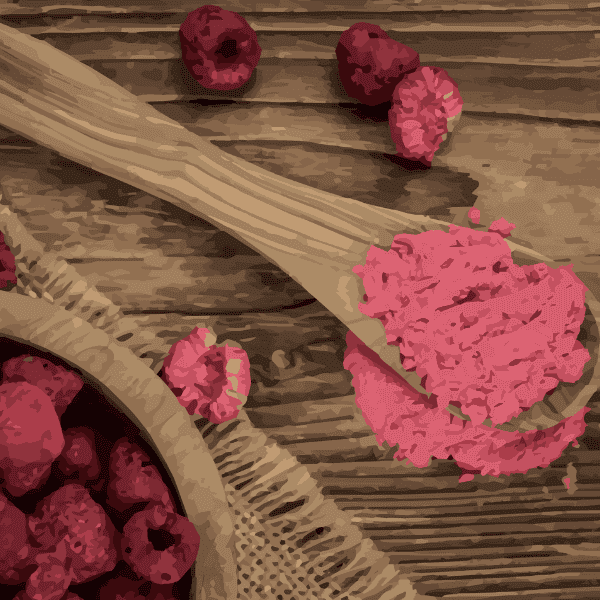
Raspberry Powder {Organic}
Raspberries are a commonly consumed fruit that are packed with benefits. Raspberries may support brain and mental health, are anti-inflammatory, and may even improve gut health. You can get them fresh, frozen, freeze-dried, or even dehydrated.
You might need raspberries if . . .
- If you are feeling bloated
- You are feeling like you are confused or have a lot of brain fog
- If you are feeling like you are irregular
Benefits of Raspberries
- High antioxidants help with brain and mental health, leading to increased mental clarity and focus.
- Anti-inflammatory- Raspberries are anti-inflammatory and help to reduce swelling in the body.
- Improved Gut health - Raspberries help support a healthy gut microbiome, which helps to improve overall health.
Common Ways to use Raspberries
Raspberries are commonly used as a food. They are often eaten fresh, frozen, dehydrated, or freeze-dried. They can be found in tea blends and herbal remedies too. Their seed powder even makes a great exfoliatant!
Try making herbal extractions like this hormone-balancing tea!
Growing and Foraging Information
Growing—Start with one-year-old raspberry canes from a reputable nursery. Plant them in the early spring once the ground thaws out and can be worked. Be sure to plant potted starts in the spring after the threat of frost has passed. Annual pruning is necessary, as shoots only bear fruit for two years. Please make sure they are well-fertilized.
Harvesting- All varieties will begin to produce fruit in their second season. In some cases, ever-bearers may bear small berries in their first autumn. In early summer, berries will ripen over about 2 weeks. You will need to pick berries every couple of days! Try to harvest berries on a sunny day when they are dry. To harvest, gently pull raspberries away from their central plug once they’re richly colored. They should come away quickly. Don’t tug too hard on your raspberries when picking. A ripe raspberry should soon be removed.
Safety Concerns
Drug Interaction: If you have any health concerns or are taking any prescription medication, please consult with your healthcare provider before adding new herbs to your diet.
Breastfeeding and Pregnancy: There are no known contraindications for breastfeeding and pregnancy.
Other Concerns: There are no concerns, as this is a common fruit of choice. Please be aware of any allergies.
Select Studies About Raspberries
Bioactive Compounds and Antioxidant Activity in Different Types of Berries
The bioactive compounds in raspberries contain phenolic acids, and flavonoids, such as anthocyanins and flavonoids, tannins, and ascorbic acid. These compounds, individually or combined, are responsible for various health benefits of berries, such as preventing inflammation disorders, cardiovascular diseases, or protective effects to lower the risk of multiple cancers.